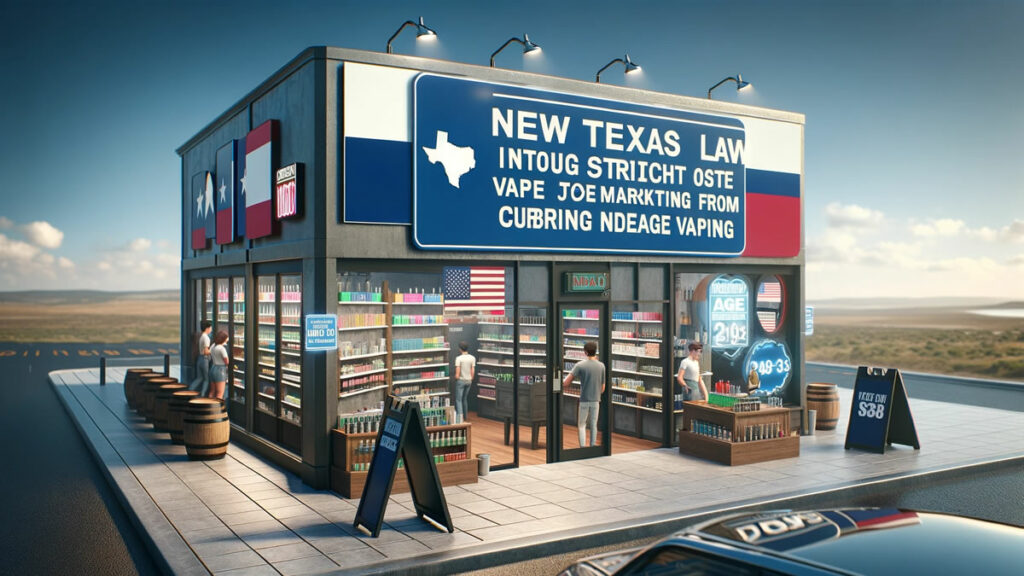A controversial new law came into effect this week placing stringent restrictions on how vape stores across Texas market and advertise products in-store.
Designed to discourage underage vaping, House Bill 7458 bans vape retailers from using imagery likely to appeal to minors like cartoons, celebrities or food items. Shops found violating the regulations face up to 6 months jail time or $2000 fines.
For many vape store owners already adhering to 21+ age verification policies, the blanket marketing ban feels excessive and unnecessarily damaging. Employees now face the hassle and cost of removing or heavily discounting compliant stock featuring previously harmless imagery.
As one worker noted, “The purpose of the law is to protect kids from the influence of marketing – but children don’t come into 21+ vape shops anyway unless accompanied by a parent.”
Why Did Texas Introduce New Vape Marketing Laws?
According to lawmakers, despite age verification measures in reputable vape stores, research showed packaging or marketing still risked influencing underage perceptions towards vaping.
Banning imagery intrinsically linked to youth pop culture aims to break this cycle of influence and curb illegal teen vaping.
What Exactly Do Texas’ New Vape Marketing Regulations Ban?
As of January 2024, all vape stores in Texas face bans marketing products using:
- Cartoons
- Celebrities
- Athletes
- Influencers
- Fruits
- Dessert Food Items
- Candy
- Soda
- Any other creative likeness appealing to youth
Alongside in-store marketing, the regulations also cover product packaging, merchandising, social media and any other publicly visible promotion.
How Has Texas’ Vape Community Responded?
Many reputable Texas vape stores already operate strict age verification policies or cater exclusively to adult smokers seeking alternatives.
As such, outrage has simmered among owners forced to discount or destroy perfectly legal stock simply due to imagery now arbitrarily deemed youth enticing.
Particularly galling is the inclusion of broad terminology like ‘any other creative likeness’ appealing to youth – effectively granting regulators control over dictating commercial creative freedom.
Could Bans Spread to Other States?
With federal action on vaping lagging, individual states continue pushing independent regulations around issues like flavor bans and age limits.
Now Texas has set a precedent on marketing, it remains concerning how rapidly similar blanket bans could cascade across state lines.
Well-intentioned or not, hastily enacted vaping laws often backfire by shifting demand towards unregulated black market providers.
Onerous marketing regulations also risk running responsible retailers out of business – ultimately failing the adults they were designed to protect.
- Myanmar Enacts Total Ban on E-Cigarettes and E-Shisha - February 25, 2026
- UK Announces Mandatory Vape Tax and Duty Stamps from 2027 - February 10, 2026
- Sri Lanka Travel 2026: Total Ban on Cigarettes & Vapes - February 5, 2026


